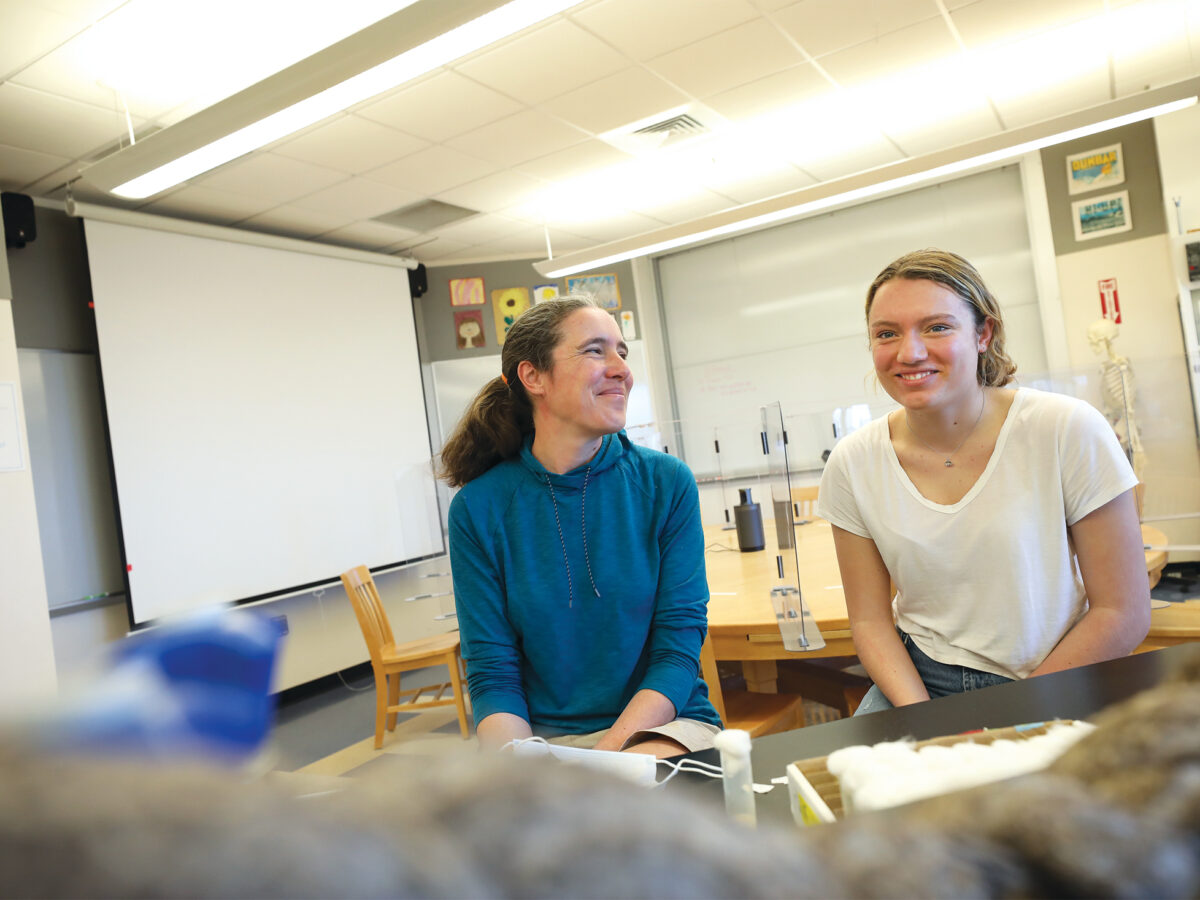Catherine Webber & Anne Rankin

Catherine Webber ’21 sits at a lab bench on the top floor of Phelps Science Center flanked by fixtures of her Exeter experience: her mom and fruit flies.
Her mom, Science Instructor Anne Rankin ’92, has brought Webber to this building since before she could walk. The flies — thousands of them flitting about in vials, snacking on a sugary goo — have been staples in Rankin’s genetics course for nearly as long. Drosophila melanogaster, it turns out, has a genetic makeup remarkably similar to that of humans.
Rankin returned to Exeter to teach in 1999. She still has a photo on her phone of an illustration of a fruit fly an elementary-school-aged Catherine drew on her whiteboard, a big clock embedded in its cartoon abdomen. “Time Taker,” the fly was named, a not-so-subtle commentary on how much time Mom spent in the lab.
It rubbed off on her daughter — Mom’s passion for science and research; not necessarily the bugs. Webber intends to study molecular and organismal biology and ecology at Colorado College on a pre-med track.
It is not uncommon for children of faculty to attend the Academy. It also is not uncommon for daughters of alumnae from the past 50 years of coeducation to follow in their mothers’ paths to Exeter. What is rare is to be both a child of an instructor and a child of an alumna, a distinction that informed Webber’s Exeter experience even before she applied.
“The conversations surrounding Exeter in my family have always been overwhelmingly positive,” Webber says. “My grandfather [Kenneth “Ned” Rankin ’59], one of Hammy Bissell’s boys, credits Exeter with changing the path of his life. My mother made the decision to come back as a teacher because she loved her time here as a student so much. … Exeter taught everyone in my family lessons and gave them memories that they’ve held on to for their whole lives.”